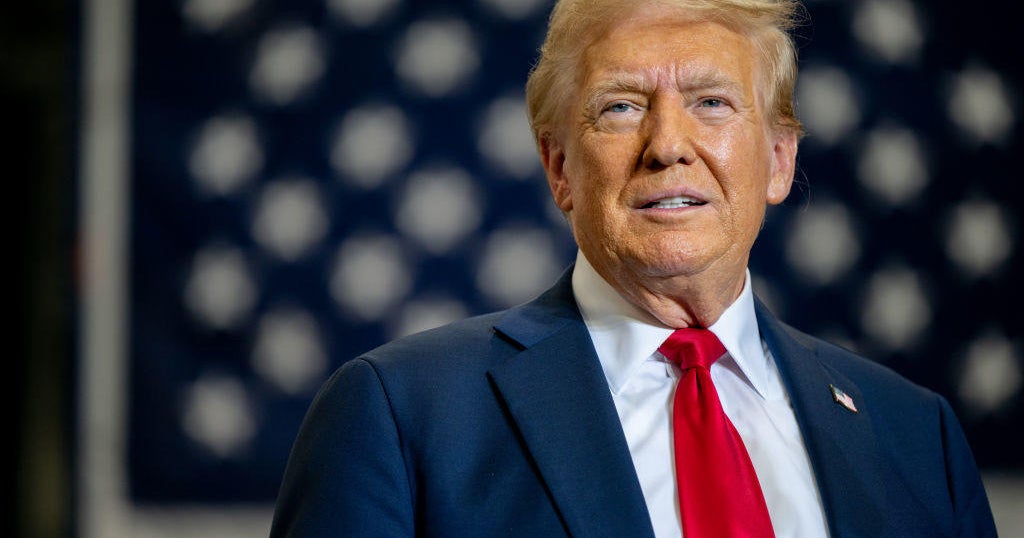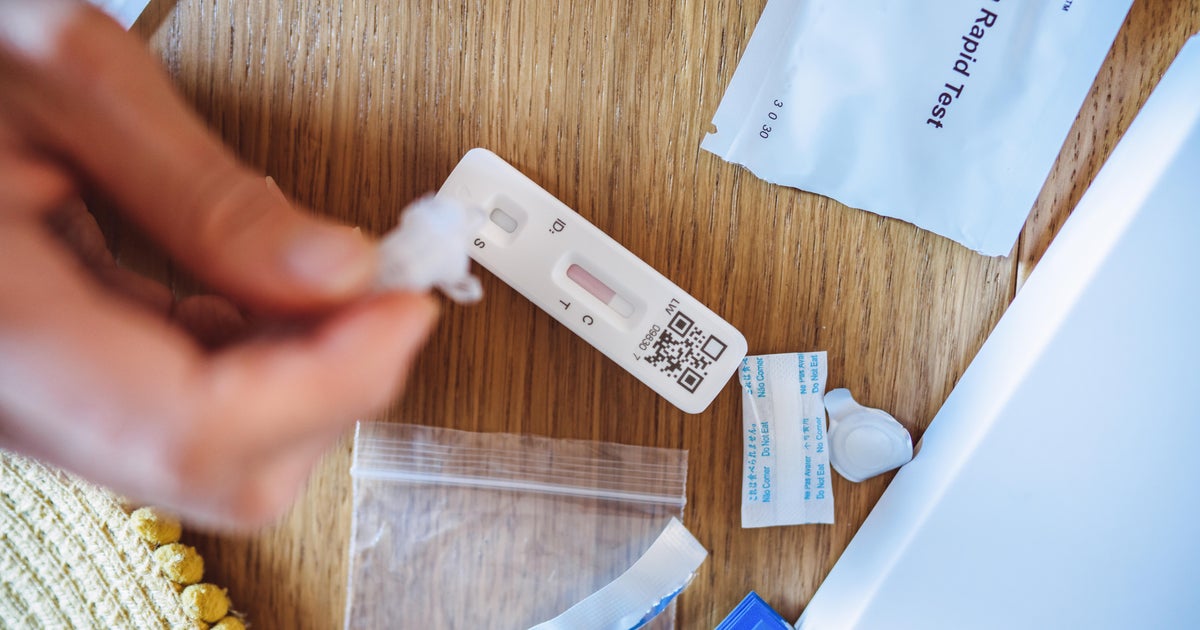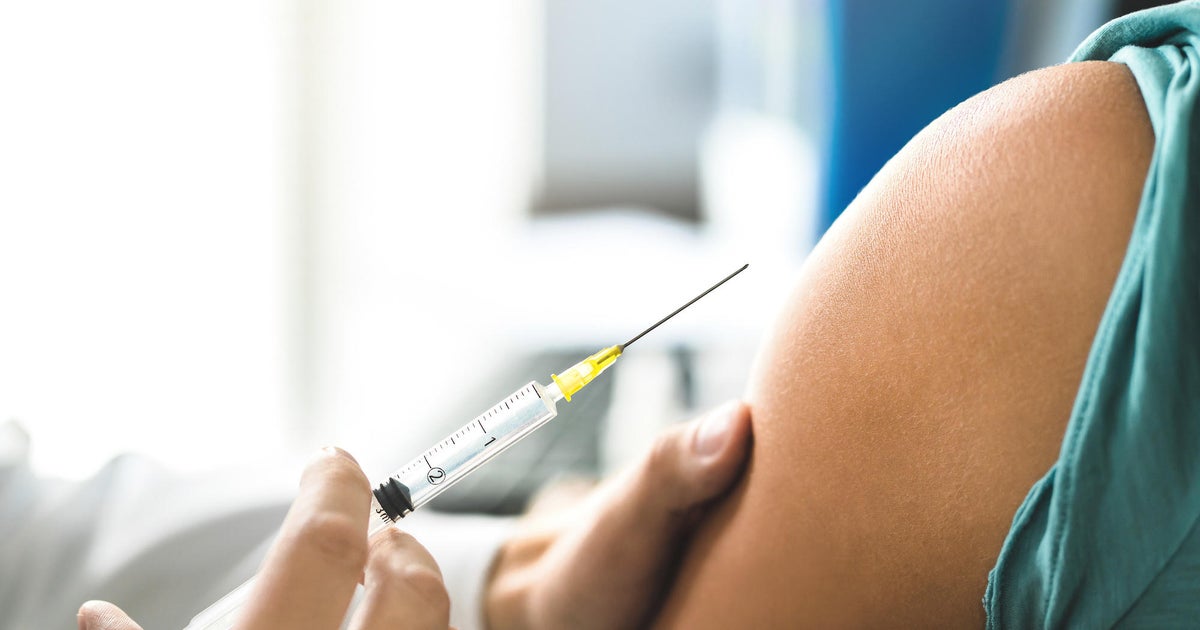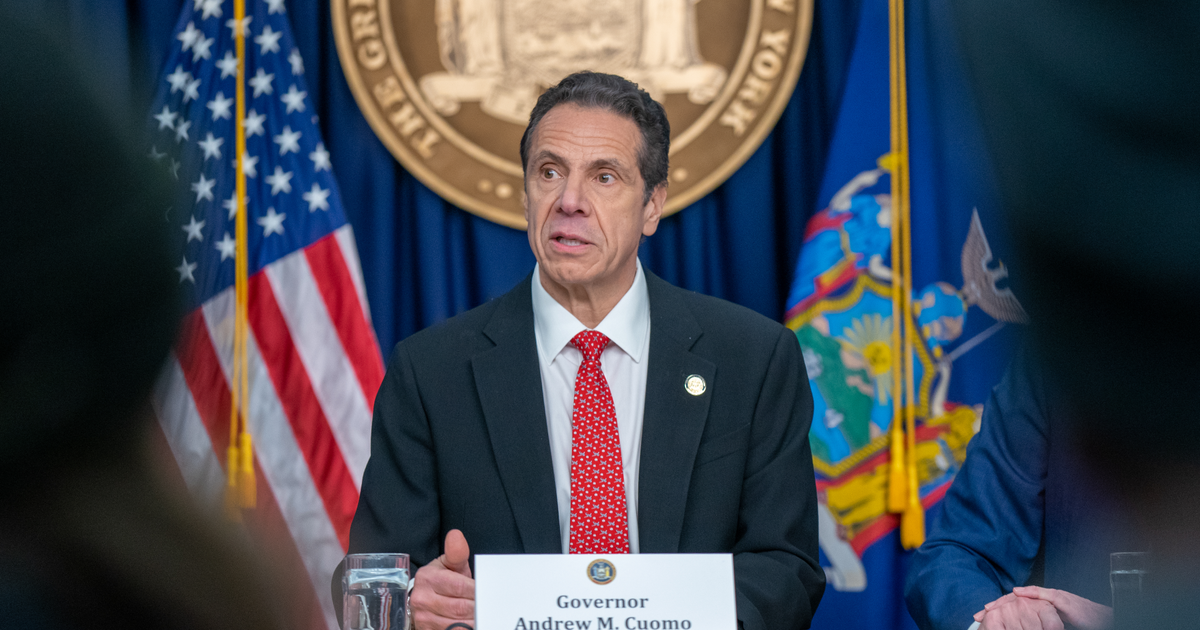CBS News
Free COVID tests are back. But there are more accurate tests for sale.

Manufacturers of the most accurate home COVID-19 tests on the market say they were left out again from the Biden administration’s latest round of free orders through COVIDTests.gov, which for a seventh time will rely on less sensitive “antigen” tests, which are generally the cheaper options available on drugstore shelves.
Federal health officials have justified the millions they have spent on device manufacturers for the latest waves as critical to subsidizing U.S. factories capable of producing tests ahead of another potential pandemic, during a time when demand has evaporated.
Taxpayer dollars have flowed largely towards manufacturers of inexpensive rapid antigen tests like Access Bio in New Jersey and iHealth in California, instead of more accurate “molecular” alternatives that the Food and Drug Administration has also greenlighted.
A spokesperson for the Administration for Strategic Preparedness and Response, which awarded the contracts, did not immediately respond to a request for comment.
What are the most accurate home tests for COVID-19?
The FDA currently has granted authorization to only four over-the-counter molecular test brands for COVID-19, which are the most accurate but also most expensive options:
- Lucira by Pfizer sells a single-use test that has the cheapest up-front cost, starting at $39.99, which detects both COVID-19 as well as influenza. The FDA says results take around 30 minutes and the shelf life of each test lasts 18 months.
- Aptitude Medical Systems sells a “starter bundle” which comes with a reusable reader and two test kits for $99.97. The FDA says results take around 30 minutes and the shelf life of the tests last around 18 months. Additional test kits cost $24.99.
- 3EO Health sells a “starter kit” that comes with a reusable testing device and two swabs for $195. The FDA says results take around 30 minutes and the shelf life of the tests last four months. Additional swabs and “test keys” cost $39.90 for a two-pack.
- Cue Health sells a reusable “reader” that costs $199. Test kits are currently out of stock on the company’s website. The FDA says results take around 20 minutes and the shelf life of the tests last around four months.
These prices are many times higher than antigen testing options, though device manufacturers say COVID-19 tests are generally eligible for flexible spending account or health savings account dollars and could be reimbursable under some health insurance plans.
Results from using a molecular test take longer because the devices need to create chemical reactions to amplify any traces of the virus that might be otherwise missed by less accurate tests.
That translates to an advertised sensitivity – their accuracy in correctly spotting infections – up to more than 90%, even when people do not have symptoms from the virus.
By contrast, the FDA warns that Americans relying on antigen tests should be prepared to use up multiple kits if they worry they might be infected.
Since antigen options have a higher risk of producing a false negative result, especially early during an infection, the agency says people should continue to repeat their testing over several days after their first negative test.
This difference is important early during a course of a COVID-19 infection, when the CDC says people tend to be most contagious. The highest amount of infectious virus is detected from patients “within a few days before and after” symptoms begin.
The CDC says in its latest guidance that testing negative on antigen tests can still be a useful “option” for helping to judge when it is safer to stop isolating at the tail end of an infection, offering a “rough approximation of whether a person is still infectious” to others.
What brands of antigen tests are being shipped by COVIDTests.gov?
COVID-19 antigen test manufacturers told CBS News that they are still delivering kits via COVIDTests.gov through contracts that were awarded last year to a dozen manufacturers.
Of them, a handful of testing brands have been able to earn the FDA’s “traditional marketing authorization” to continue to sell their tests in the wake of the pandemic as emergency authorities wind down, including:
- CorDx sells two-packs for $14.99 that offers results in 10 minutes
- iHealth Labs sells two-packs for $17.98 that offers results in 15 minutes
- InBios International sells two-packs for $8.50 that offers results in 20 minutes
- Quidel Corporation sells two-packs for $16.99 that offers results in 10 minutes
Other tests remain under emergency use authorization, including OraSure’s InteliSwab kit. That “more accessible” test is being shipped through the Administration for Community Living again this year for free to Americans who are blind or who have low vision.
While less accurate than molecular tests, ASPR says their antigen tests this year will continue to be able to “detect the currently circulating COVID-19 variants.”
CBS News
9/26: The Daily Report with John Dickerson

Watch CBS News
Be the first to know
Get browser notifications for breaking news, live events, and exclusive reporting.
CBS News
Hurricane Helene strengthens to Category 4

Watch CBS News
Be the first to know
Get browser notifications for breaking news, live events, and exclusive reporting.
CBS News
Iranian hackers charged in alleged targeting of Trump campaign, sources say

Federal prosecutors have secured criminal charges against multiple Iranian hackers for allegedly targeting members of former President Donald Trump’s presidential campaign as part of a malicious cyber scheme, multiple sources familiar with the investigation confirmed to CBS News.
The Iranian hackers were indicted by a grand jury on Thursday and the charges could be announced as early as Friday, the sources said. The nature of the allegations and the names of the defendants were unknown as charging documents remain under seal. The exact number of people charged was also not confirmed.
ABC News and Politico first reported on elements of the charges.
A Justice Department spokesperson declined to comment on CBS News’ reporting. A spokesperson for the Trump campaign also did not immediately respond to a request for comment.
Once publicly announced, the charges will mark an escalation in the federal government’s work to combat Iran’s alleged efforts to interfere in the 2024 presidential election. Federal officials have warned Iran is seeking to undermine Trump’s campaign.
The FBI launched probes earlier this summer after both the Trump and then-Biden campaigns experienced attempted phishing schemes targeting people associated with the candidates, sources told CBS News in August.
Last week, federal officials with the FBI and other intelligence agencies released a statement confirming, “Iranian malicious cyber actors in late June and early July sent unsolicited emails to individuals then associated with President Biden’s campaign that contained an excerpt taken from stolen, non-public material from former President Trump’s campaign as text in the emails. There is currently no information indicating those recipients replied.”
The statement went on to say that “Iranian malicious cyber actors have continued their efforts since June to send stolen, non-public material associated with former President Trump’s campaign to U.S. media organizations…Foreign actors are increasing their election influence activities as we approach November.”
Iran’s United Nations mission previously denied it had plans to interfere or launch cyberattacks in the U.S. presidential election, telling CBS News in a statement last week that “the Islamic Republic of Iran does not engage in the internal uproars or electoral controversies of the United States,” adding that “Iran neither has any motive nor intent to interfere in the U.S. election; and, it therefore categorically repudiates such accusations.”
Trump’s campaign revealed last month that it had been hacked and said Iranian actors were involved in stealing and distributing sensitive internal documents to members of the press.
FBI agents worked with both Google and Microsoft — two major tech firms and providers of email services — to dig into the apparent spearphishing attacks targeting those close to both presidential campaigns, according to two people familiar with the probe. A report published by Microsoft earlier this summer revealed Iran is evolving its tactics to affect the upcoming election.
Trump and former members of his administration have been increased targets of Iranian actors following the killing of Iranian military commander Qassem Soleimani in 2020. Some former officials received increased protection because of death threats, and in July, federal prosecutors filed charges against a Pakistani national with ties to Iran for allegedly planning to assassinate American politicians, including possibly Trump.
Iran is not the only foreign adversary that U.S. officials say is seeking to undermine the upcoming presidential election. Intelligence agencies have warned Russia and China have launched cyber campaigns of their own to sew chaos, with Russia allegedly seeking to damage Vice President Kamala Harris’ bid for the White House.
Speaking at an event hosted by the Atlantic Council on Thursday, Deputy Attorney General Lisa Monaco said, “We are seeing more threat actors, more threat actors getting into the game” of election interference, exacerbated by advancements in artificial intelligence.
The goal, according to Monaco, is to “sow discord, sow distrust in our election system and undermine confidence in our democratic process.”
and
contributed to this report.










